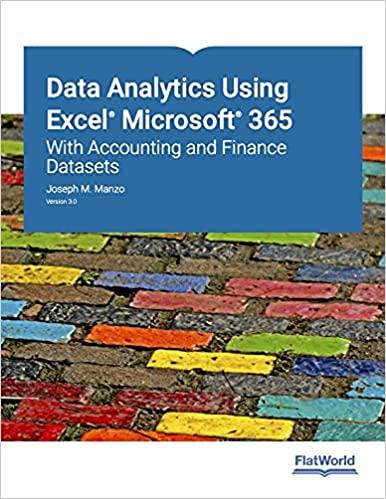Question
In today's complex global economy, businesses face multifaceted challenges in their financial management processes. One of the key areas demanding meticulous attention is accounting. Considering
In today's complex global economy, businesses face multifaceted challenges in their financial management processes. One of the key areas demanding meticulous attention is accounting. Considering the intricate nature of modern financial transactions and the dynamic regulatory landscape, businesses encounter an array of accounting dilemmas.
As companies expand their operations internationally, they often grapple with the complexities of international accounting standards. This challenge is exacerbated by the constant changes in these standards, necessitating a deep understanding of not only the Generally Accepted Accounting Principles (GAAP) but also the International Financial Reporting Standards (IFRS). Differences in reporting standards across jurisdictions give rise to intricate issues regarding the consolidation of financial statements, translating foreign currency transactions, and comprehending the nuances of fair value accounting.
Moreover, in an era marked by technological disruption, businesses are increasingly adopting cutting-edge accounting software and artificial intelligence-driven tools. While these technologies promise efficiency and accuracy, they also introduce a new set of challenges. Data security and privacy concerns loom large, requiring businesses to strike a delicate balance between leveraging the benefits of advanced accounting systems and safeguarding sensitive financial information from cyber threats and breaches.
Furthermore, the growing emphasis on sustainability reporting adds another layer of complexity to the accounting landscape. Stakeholders, including investors, regulators, and consumers, are now demanding transparency regarding a company's environmental, social, and governance (ESG) performance. Integrating ESG metrics into financial reporting poses intricate questions about measurement methodologies, standardization, and the impact of sustainable practices on long-term financial performance.
In light of these challenges, businesses are compelled to reevaluate their internal control systems. Ensuring compliance with regulatory requirements, preventing fraud, and maintaining the integrity of financial information are paramount. Questions regarding the design and effectiveness of internal controls, segregation of duties, and risk assessment methodologies become pivotal in this context.
Given the multifaceted nature of these challenges, businesses find themselves at a crossroads, demanding strategic decisions and expert insights. In this complex accounting landscape, the question that arises is: How can businesses navigate these intricate challenges effectively, ensuring accurate financial reporting, regulatory compliance, and sustainable growth while leveraging technological advancements and integrating ESG considerations into their accounting practices?
Step by Step Solution
There are 3 Steps involved in it
Step: 1

Get Instant Access to Expert-Tailored Solutions
See step-by-step solutions with expert insights and AI powered tools for academic success
Step: 2

Step: 3

Ace Your Homework with AI
Get the answers you need in no time with our AI-driven, step-by-step assistance
Get Started


